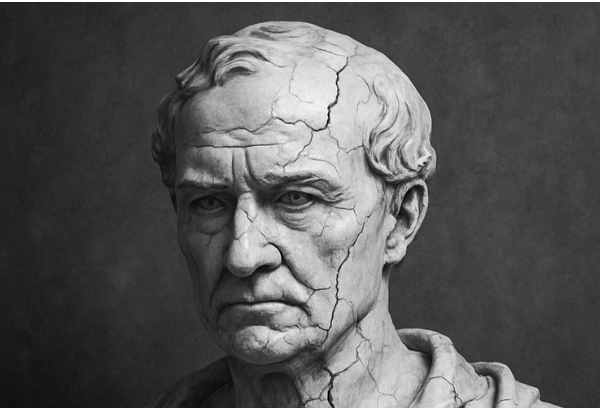

When reputation erodes without cause, what remains?
Reputation has long been regarded as one of a person's most valuable possessions earned slowly, often through years of service, character, and loyalty to principle. Yet today, reputations can be dismantled with stunning speed, often without evidence, due process, or any meaningful opportunity to respond.
The Convergence of Power and Narrative
Power, influence, and narrative too often converge to undermine an individual's standing, even where no wrongdoing has occurred. What may begin as a private disagreement can escalate into public condemnation, frequently without the safeguards that justice demands.
When media narratives are shaped by serious factual errors and left uncorrected, the damage to individual lives and to public trust is profound.
When private interests gain disproportionate influence over public narratives, the integrity of information and the public's ability to trust it comes under threat. And when institutions entrusted with fairness fail to uphold principled standards, the consequences extend far beyond personal harm. They strike at the very foundation of the commonwealth.
The Fragility of Liberty
When personal reputations are destroyed without fairness, a culture of fear and cynicism begins to take root. Citizens retreat from public engagement, institutions corrode, and the space for reasoned discourse narrows threatening the very conditions in which freedom flourishes.
A constitutional republic is not sustained merely by elections and procedures. It rests on a deeper covenant: that truth will prevail over rumor, that the dignity of the individual will be honored, and that power will be bounded by law. A free people depend not only on elections but on the unwavering protection of constitutional rights, including the right to due process, free expression, and fair treatment under the law. The First and Fourteenth Amendments guarantee the freedoms of speech, religion, and due process rights that form the bedrock of a free society. When these protections are weakened, trust in the life of the republic begins to erode.
The health of democracy depends not merely on the machinery of governance but on a culture committed to truth, fairness, and restraint. If reputation can be weaponized without accountability, liberty becomes fragile, and justice grows uncertain. Citizens must have confidence that their rights will be protected, not subordinated to the shifting interests of those who wield greater influence.
A Call for Vigilance
This is not a call for outrage or retaliation. It is a call for principled vigilance; a vigilance belonging to free men and women, conscious of their inheritance and mindful of their duty. It is the calm, unbreakable insistence on truth and justice that sustains a free people against the tides of influence and error.
We must insist quietly but firmly that due process, truthfulness, and fairness are essential pillars of any society worthy of its name, and that institutions owe their highest loyalty not to expedience, but to enduring ideals. To insist quietly but unshakably on these principles is not to depart from the wisdom of the ancients; it is to fulfill it.
If we fail to defend these principles now, we risk losing not only personal justice, but the qualities that have preserved freedom across generations: trust, honor, reason, and a shared commitment to the truth.
Each citizen, and each conscience, bears a share in this enduring work.
Restoring these foundations will not require the courage of spectacle, but the steady, disciplined courage to act rightly.
If we have the patience and resolve to defend what is true, the republic can yet be renewed.
If truth becomes optional and reputation disposable, the republic itself grows fragile.
The future of the republic depends upon it.

